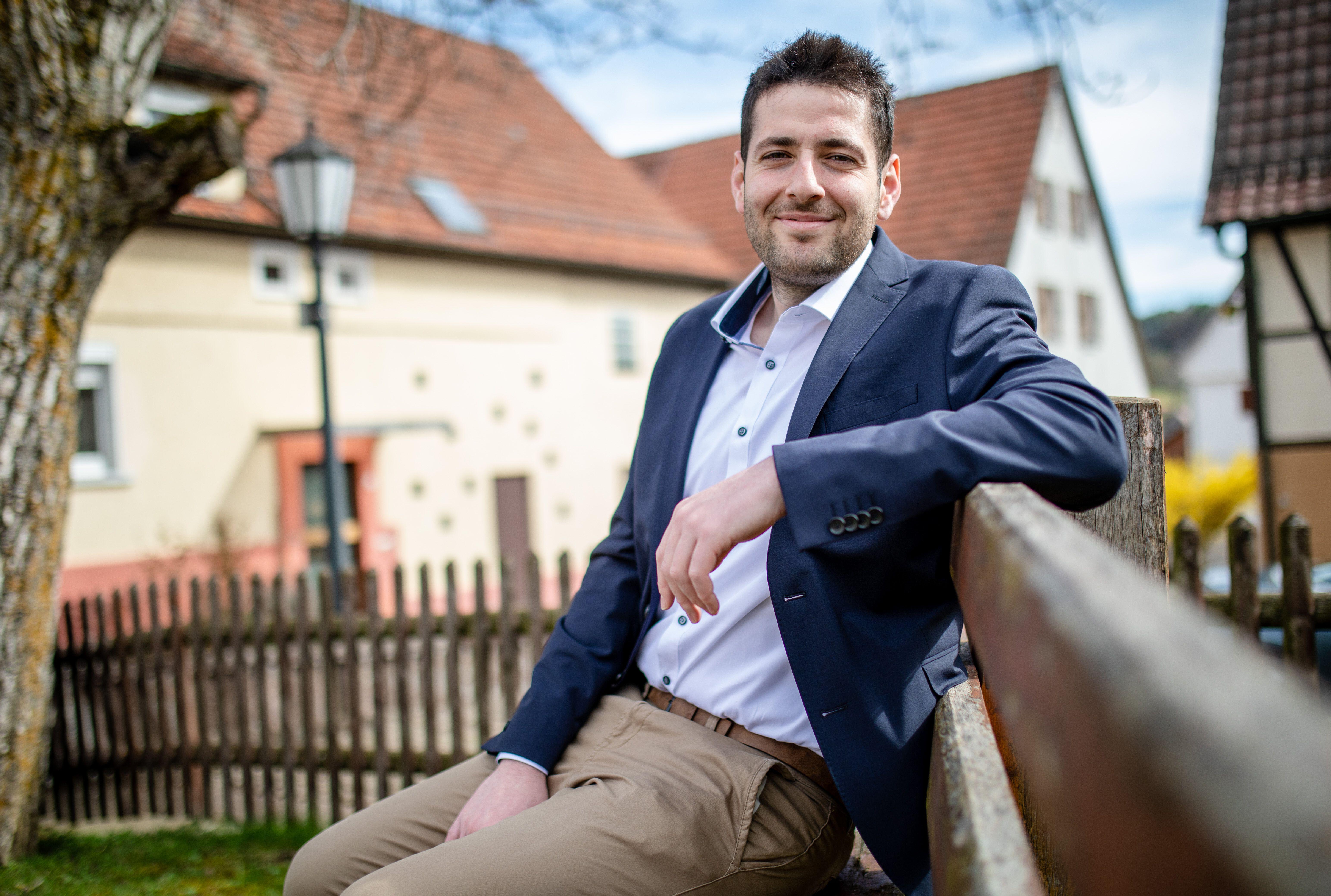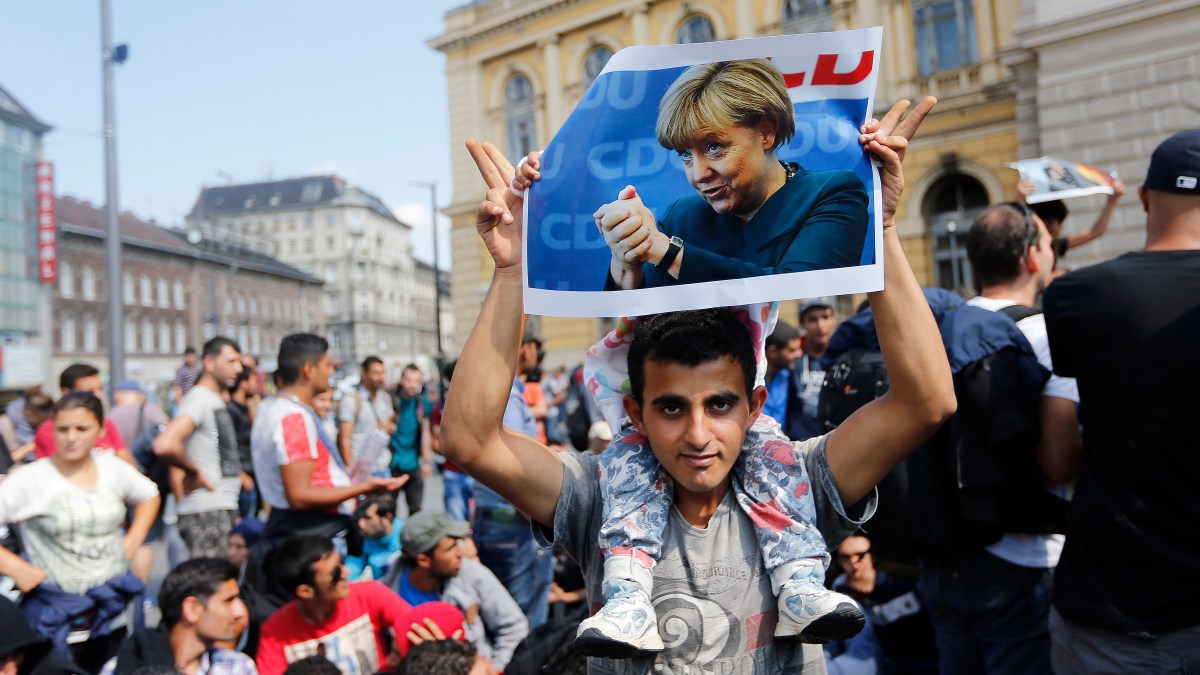In the run-up to the tenth anniversary this weekend of the high point of Germany’s “migrant crisis”, Angela Merkel has come under unremitting attack over her decision to allow more than a million asylum seekers, largely from Syria, Afghanistan, and Iraq, into her country.
Last week the former chancellor finally hit back at her critics, many of them from her Christian Democrat party. Her question was simple: what would they have done in her place when confronted with the flood of new arrivals?
“Should we have positioned water cannons at the border?” she asked during a debate, momentarily losing her cool. “What would have become of our values in that case?”
It was on August 31, 2015 that Merkel uttered the phrase that would define her 16 years as German leader. “Wir schaffen das” (“We can manage”), she declared, when asked how her government would cope with the crisis. The talk was of Willkommenskultur (welcome culture) as volunteers turned up at railway stations bearing food and clothing.
Today’s Germany is a very different place. “We are a very polarised country,” admitted Niklas Harder, a senior political scientist at the German Centre for Integration and Migration Research.

Merkel poses for a selfie with a migrant from Syria in 2015. Below, federal police conduct vehicle checks on the Austrian border at Kiefersfelden this May
SEAN GALLUP/GETTY IMAGES

MICHAELA STACHE/AFP/GETTY IMAGES
“There are still people who volunteer and do a lot for migrants, but you will hardly find any politician from a major party who will say that what happened in 2015 was a good thing and that we should be proud of what we accomplished. This is generally not seen as a vote-winning proposition in politics at the moment.”
Certainly not Friedrich Merz, a fellow Christian Democrat, who, since becoming chancellor in May, has posted thousands more police officers on Germany’s borders and promised to step up deportations of those who have lost their right to remain. This has even included small groups of men with criminal records sent back to Taliban-ruled Afghanistan.
In an apparent vindication of the new tougher line, figures this month from the Federal Office for Migration and Refugees (BAMF) showed a fall in asylum claims in Germany to 72,818 in the first half of this year from 132,201 in the same period in 2024. In the case of Syrians — long the largest single group — the overthrow in December of Bashar al-Assad’s regime has also helped to bring down the numbers seeking sanctuary in Europe.
Asked last month about Merkel’s maxim — which she first uttered after a stormy visit to a refugee camp in Dresden when she was heckled by critics — Merz said it was clear Germany “did not cope” with the massive influx of people.
In a poll this month for the Robert Bosch Foundation, a think tank, just 23 per cent of Germans described migration as an opportunity the country should seize, 32 per cent as a necessity it must deal with and 39 per cent as primarily as a threat to be combated.
The political landscape, meanwhile, has been transformed since 2015. Back then the fledgling Alternative for Germany, (AfD), which began life as a Eurosceptic party, was polling at just 3 per cent. In February’s election, long since transformed into a right-wing, anti-immigrant force, it came second with almost 21 per cent of the vote (double its score in 2021).
• Friedrich Merz: Germany ‘ cannot cope’ with asylum seekers
Its share has since grown further. According to one pollster, Forsa, the AfD has for the first time this month become Germany’s most popular party, with 26 per cent, ahead of Merz’s Christian Democrats, who are on 24 per cent — a sign that the chancellor’s tough line on immigration is failing to win back voters who have moved to the right.
Anniversary angst
The anniversary has produced a bout of national soul-searching. A high-profile documentary broadcast on ZDF, one of Germany’s main television channels, focused on a district of the northern city of Salzgitter, where foreigners make up more than a third of the population.
Sarah Tacke, a journalist and TV presenter, found a parallel society and many living what she called “a Syrian life in Salzgitter”. Before making the programme she appealed on social media for people’s reactions to the growth of immigration.

Sarah Tacke said she had found a parallel society in Salzgitter
ALAMY
Thousands replied. “Most of the people who wrote to me are frightened by it,” she told German media, citing responses from those who no longer recognised their home city or felt “alien” in it.
Meanwhile, Der Spiegel, the news magazine, attempted an audit of the response of successive governments to what it called a “gigantic integration experiment” under four categories: provision of housing; work; educational achievement; and the impact on law and order. “The large number of refugees has enriched Germany in some ways, but has also overwhelmed it in others,” it concluded.
• Germany’s move to curb migration ripples across EU
As in Britain, it has proved a challenge to find accommodation for new arrivals, who are distributed around Germany according to a rigid formula based on population numbers and tax revenue. Matters have been complicated over the past three years by the arrival of Ukrainians fleeing the war there. Some 1.2 million still have temporary protection in Germany, more than in any other EU country.
Although many of the early arrivals have long since been given permanent homes, there are still mass shelters housing hundreds. In Berlin, thousands of people continue to live in tent halls on the site of the former Tegel airport.
The implications for law and order have been even more problematic — and not just because of a series of headline-grabbing Islamist attacks over the past decade that intensified in the run-up to February’s election.
Foreign nationals account for more than 43 per cent of registered violent crime such as assault, murder, or robbery, while making up only 15 per cent of the population, the magazine claimed. This is only partially explained by the fact the migrants themselves are younger and more likely to be male than the population as a whole.
Harder is nevertheless struck by how quickly many Syrians — who formed the largest group of those who arrived in 2015 — have integrated into German society. More than 200,000 have acquired citizenship since 2022, the first year when most became eligible, via a complicated process that requires a high level of knowledge of Germany’s language and culture as well as satisfying economic requirements.
By the time they have been in Germany for seven years, 73 per cent of Syrian men are in work, mostly in industry, transport, logistics and health, though typically performing less skilled jobs than they had at home, according to a study by the Institute for Employment Research (IAB). That figure is largely in line with the indigenous population. The figure drops to just 29 per cent for Syrian women, however.
Under German rules, asylum seekers can apply for permission to work in certain occupations even before their claims are decided.
“We have never seen anything similar with other migration movements before,” Harder said. “Germany definitely accomplished a lot in the last ten years, but that is something that is currently forgotten or hidden in the public discourse.”
In March 2023, Germany even got its first Syrian mayor: Ryyan Alshebl, who arrived as a refugee in 2015 unable to speak a word of German, found a job in local government and was elected, aged just 29, to lead Ostelsheim, a town of 2,500 people in Baden-Württemberg.

Ryyan Alshebl came to Germany unable to speak the language but is now mayor of Ostelsheim
ALAMY
Many of those with what is euphemistically known as a Migrationshintergrund (migration background) or Migrationserfahrung (migration experience), meanwhile, complain of mounting racism.
Among them is Tahsim Durgun, 29, a popular social media influencer of Kurdish origin, with 569,000 followers on Instagram. His first book, Mum, Please Learn German, a heartfelt and humorous story of growing up in an immigrant family in Lower Saxony, was a surprise hit this spring, spending 12 weeks at No 1 on the bestseller list.
In it, Durgun describes the racism he suffered at school and at university. It has since become “one hundred per cent worse”, he said. “It is much more than the AfD. Racism has become worse every day, more ruthless, and more daring. Racists no longer have any reservations.
“Pressure from the right has become so acute in recent years,” he added. “I would really like to go back to when Merkel uttered her famous phrase.”
Thirst for workers
So, it seems, would German industry, which badly needs badly foreign labour. News of the latest fall in asylum claims was greeted with dismay by Deutsche Post, which urged the adoption of “an open and pragmatic immigration policy”. Deutsche Bahn, the main rail operator, claimed “immigration is part of the solution” to getting its troubled service back on track.
Despite a slowing economy, there are still well over a million unfilled jobs in the country — 109,000 of them in IT alone, according to a report this month by Bitkom, the digital industry association.

The rail operator Deutsche Bahn says migration is crucial to its services
INA FASSBENDER/AFP/GETTY IMAGES
Industry leaders fear an increasingly unwelcoming — or even hostile — atmosphere towards immigrants will complicate attempts to recruit not just IT specialists, but engineers and doctors as well as people to drive buses or work on building sites and in restaurants.
Compounding the problem, some of those who have settled in Germany in recent years are thinking of departing again, according to a survey of 50,000 foreign-born residents by the IAB at the Federal Employment Agency.
“Twenty-six per cent, or around 2.6 million people, say they actually considered leaving Germany last year,” Yuliya Kosyakova, the report’s lead author said at its launch in June. “Around 3 per cent, or 300,000 people, already have concrete plans to leave.”
Among the reasons cited are the political situation, the slowing economy, high taxes and bureaucracy.
Some — primarily Poles, Romanians, Turks and Ukrainians — simply return to their home countries. Others, typically the more highly qualified, move on to other places, often for better-paid jobs or a superior lifestyle: Switzerland tops the list, followed by America and Spain.
Olivia, who teaches at a private language school in Hamburg, says her students, mostly foreign professionals or their partners, rarely complain of open hostility — though this could be because the port city has long had a reputation as an open, welcoming place.
“More often they will complain that it is very difficult to get to know Germans and be invited to their homes,” she said. Other gripes are the weather, bureaucracy, difficulty in getting their qualifications recognised and the language itself. “People are expecting a high-tech place and are surprised to see some still use fax machines,” she said.
